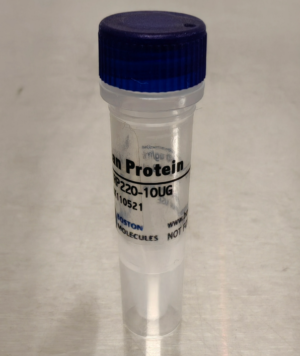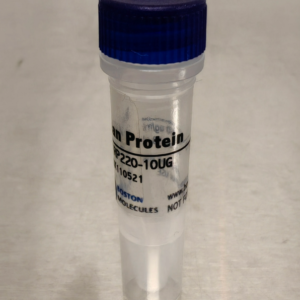Mouse RANKL-FL, 10 ug
Mouse RANKL-FL, 10 ug
RANKL; RANKLreceptor activator of nuclear factor kappa B ligand; Receptor activator of nuclear factor kappa-B ligand; sOdf; TNF-related activation-induced cytokine; TNFSF11; TRANCE; TRANCEODFhRANKL2;
$198.00
TRANCE (receptor activator of NF-kappa B ligand [RANK L], also called TNF-related activation-induced cytokine [TRANCE], osteoprotegrin ligand [OPGL], and osteoclast differentiation factor [ODF]), is a member of the tumor necrosis factor (TNF) family. TRANCE was originally identified as an immediate early gene up-regulated by T cell receptor stimulation. The mouse TRANCE cDNA encodes a type II transmembrane protein of 316 amino acids with a predicted cytoplasmic domain of 48 amino acids and an extracellular domain of 247 amino acids. The extracellular domain contains two potential N-linked glycosylation sites. Mouse and human TRANCE share 85% amino acid identity. TRANCE is primarily expressed in T cells and T cell rich organs, such as thymus and lymph nodes. The multi-functions of TRANCE include induction of activation of the c-jun N-terminal kinase, enhancement of T cell growth and dendritic cell function, induction of osteoclastogenesis, and lymph node organogenesis. RANK is the cell surface signaling receptor of TRANCE. RANK has been shown to undergo receptor clustering during signal transduction. Osteoprotegrin, a soluble member of the TNF receptor family which binds TRANCE, is a naturally occurring decoy receptor that counterbalances the effects of TRANCE.



Reviews
There are no reviews yet.